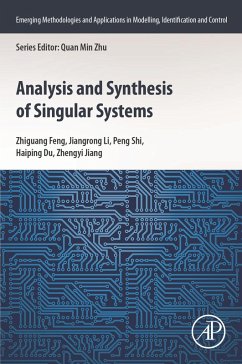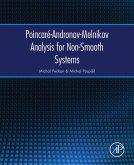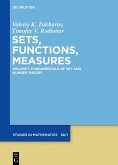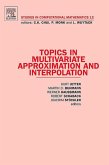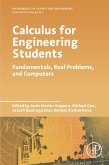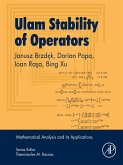Analysis and Synthesis of Singular Systems provides a base for further theoretical research and a design guide for engineering applications of singular systems. The book presents recent advances in analysis and synthesis problems, including state-feedback control, static output feedback control, filtering, dissipative control, H8 control, reliable control, sliding mode control and fuzzy control for linear singular systems and nonlinear singular systems. Less conservative and fresh novel techniques, combined with the linear matrix inequality (LMI) technique, the slack matrix method, and the reciprocally convex combination approach are applied to singular systems.
This book will be of interest to academic researchers, postgraduate and undergraduate students working in control theory and singular systems.
This book will be of interest to academic researchers, postgraduate and undergraduate students working in control theory and singular systems.
- Discusses recent advances in analysis and synthesis problems for linear singular systems and nonlinear singular systems
- Offers a base for further theoretical research as well as a design guide for engineering applications of singular systems
- Presents several necessary and sufficient conditions for delay-free singular systems and some less conservative results for time-delay singular systems
Dieser Download kann aus rechtlichen Gründen nur mit Rechnungsadresse in A, B, BG, CY, CZ, D, DK, EW, E, FIN, F, GR, HR, H, IRL, I, LT, L, LR, M, NL, PL, P, R, S, SLO, SK ausgeliefert werden.
"Singular systems are called descriptor systems or generalized state-space systems. They frequently appear in vehicle suspension systems, flexible robots, large-scale electric networks, chemical engineering systems, and complex ecosystems. Singular systems are a more natural description of dynamic systems than the standard state-space systems. This is due to the fact that singular systems can preserve the structure of physical systems more than accurately by including non-dynamic constraints and impulsive elements. In other words, singular systems are described by differential equations coupled with functional equa tions. Consequently, the stability problem is much more complicated than that for standard state-space systems, because it requires considering not only stability, but also regularity and absence of impulses (for continuous-time singular systems) and causality (for discrete-time singular systems). These are some reasons that singular systems not only have practical significance, but also are of great theoretical inter est. The purpose of this book is to present a systematic theory about analysis and synthesis of singular systems by introducing recent theoretical findings. In very few words, this book includes the following eight chapters, namely: Chapter 1 is the introduction; in Chapter 2 dissipative control and filtering for discrete-time linear singular systems are considered; in Chapter 3 the H8-control with transients problem for nonzero initial conditions is solved; in Chapters 4 and 5, considering the time delay, the problems of delay-dependent H8-control and dissipative synthesis for singular delay systems are stated, respec tively; in Chapter 6, for singular Markovian systems, by applying equivalent sets technique, some new formulation of dissipativity conditions are obtained; Chapter 7 carries out sliding mode control (SMC) problem for singular stochastic Markov systems (SSMSs); in Chapter 8, for nonlinear singular systems, by using Takagi-Sugeno (T-S) fuzzy model to describe, the issues of admissibility analysis and controller design for T-S fuzzy singular systems are investigated. By its purpose, this book is a base for further theoretical research or guidance of engineering applications. It can serve as a reference for undergraduate and postgraduate students who are interested in singular systems and can be useful for all automatic control engineers and scientists which must treat and solve problems involving singular systems." --zbMath, 2020, Mihail Voicu reviewer, expert opinion

